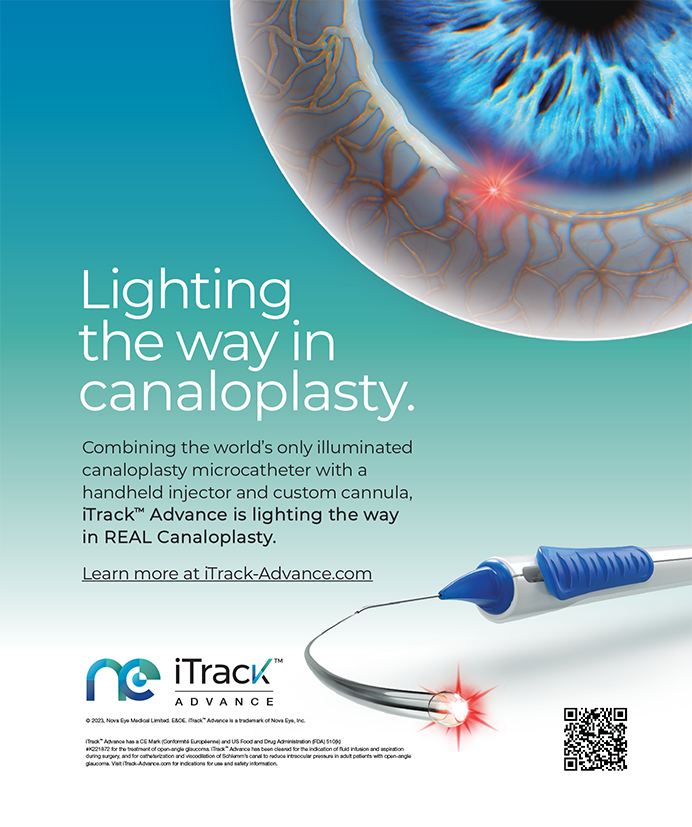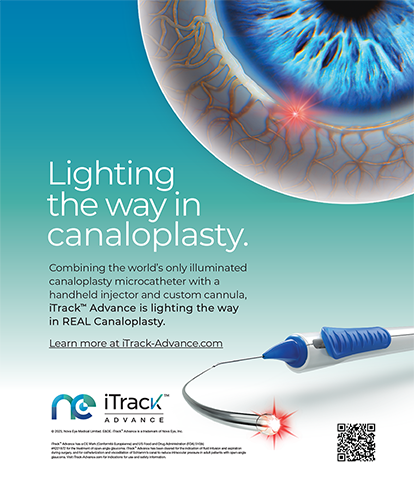Why did you decide to specialize in ophthalmology?
My undergraduate mentor, Chris Hillyer, MD, a pathologist at Emory University, told me that, in order to embrace medicine, I would need to focus on three pillars: clinical practice, education, and clinical research. Of all the medical fields, ophthalmology was my calling. I enjoy the challenge of handeye coordination and the positive impact that eye care physicians have on patients' quality of life. To this day, I reflect on what Dr. Hillyer said. My generation of ophthalmologists has been fortunate to stand on the shoulders of innovators. I hope to do my part in keeping our field intriguing for the next generation of ophthalmologists.
What do you think are the most promising developments in refractive surgery?
There is a lot of positive energy surrounding refractive cataract surgery. Premium IOLs are here to stay. My patients request these lenses, and I think there is more growth opportunity to come. The femtosecond laser is a disruptive technology that is very exciting and fun to use. We have yet to see the full extent of what the femtosecond laser is capable of doing.
What aspect of your career do you enjoy most?
There are many bright, approachable individuals both on the clinical and industry sides of ophthalmology. Practicing ophthalmology can sometimes feel like a solo sport, but I have been fortunate to collaborate, share ideas, and become good friends with some of the top minds in our field. Whether through different organizations, advisory boards, or multinational trials, it is fun to develop future therapies. It is also comforting to hear that a friend in Florida is dealing with the same trials and tribulations at the office as I am in Los Angeles.
What is your advice to other young ophthalmologists regarding how to incorporate research into a busy clinical practice?
When conducting clinical research in the academic or private sector, it is important to remain practical and be sure your office has the resources to spare and to fully commit to clinical trials. Participating in studies is not part-time work and requires a full-time staff. The paperwork is significant, and acquiring institutional review boards can sometimes be daunting. When my office first started conducting trials, I was thrilled to have the opportunity to participate. We soon figured out our strengths and determined which trials were right for us. It is important not to waste your or your sponsor's time. Try to participate in a trial that you believe can complete enrollment. Some physicians are so successful at conducting clinical trials that research is their main focus. In my practice, clinical practice and patients' care come first, but we are still serious about the trials with which we are involved.
You have lived in different areas of the country, from Washington, DC, to Texas, to California. How has experiencing a variety of regions in the United States benefited you as a physician and as an individual?
I never set out to study and live all over the country, but in doing so, I have learned the customs and mannerisms of both the South and the North and what it means to be from Texas. I can relate to my patients in a unique way by sharing my experiences from around the country. Understanding and being sensitive to customs and mannerisms helps build trust. Although I picked up some Spanish in high school, I learned “medical Spanish” during my residency in Washington, DC, and working side by side with attending residents and fellows in Texas. I am far from bilingual, but I never met a Spanish-speaking patient who was not touched or appreciative that I tried to build a connection with him or her through attempting to speak his or her native language.


